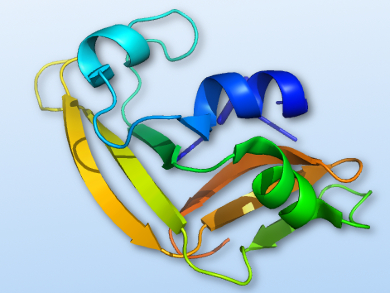Producing biobased therapeutics usually involves modifying the genetic material of a bacterium and coaxing it to produce the desired proteins. However, some proteins are difficult to express or purify, and the process can be expensive and time-consuming. Avoiding the need for living cells altogether could allow the faster, easier production of proteins for medical applications such as cancer treatments and vaccines.
Bradley C. Bundy, Brigham Young University, Provo, UT, USA, and colleagues have developed a cell-free system that can produce the anti-cancer protein onconase. Onconase is cytotoxic, and usually difficult to purify after expression in Escherichia coli bacteria. The team used an extract of E. Coli cells, phosphoenolpyruvate- and glucose-based mixtures as energy sources, added a plasmid which encodes the desired protein, and incubated the mixture. The enzyme was produced in good yields, did not need purification, and showed similar activity to the in vivo product.
The system can be freeze-dried and stored for over a year without losing its activity, and is reactivated easily by adding water. According to the researchers, this allows the system to be used in the field and under less-than-ideal storage conditions. The system could also be adapted for other difficult-to-express proteins, and possibly allow for fast vaccine synthesis without the need for expensive equipment.
- Cell-free protein synthesis of a cytotoxic cancer therapeutic: Onconase production and a just-add-water cell-free system,
Amin S.M. Salehi, Mark Thomas Smith, Anthony M. Bennett, Jacob B. Williams, William G. Pitt, Bradley C. Bundy,
Biotechnol. J. 2015.
DOI: 10.1002/biot.201500237




